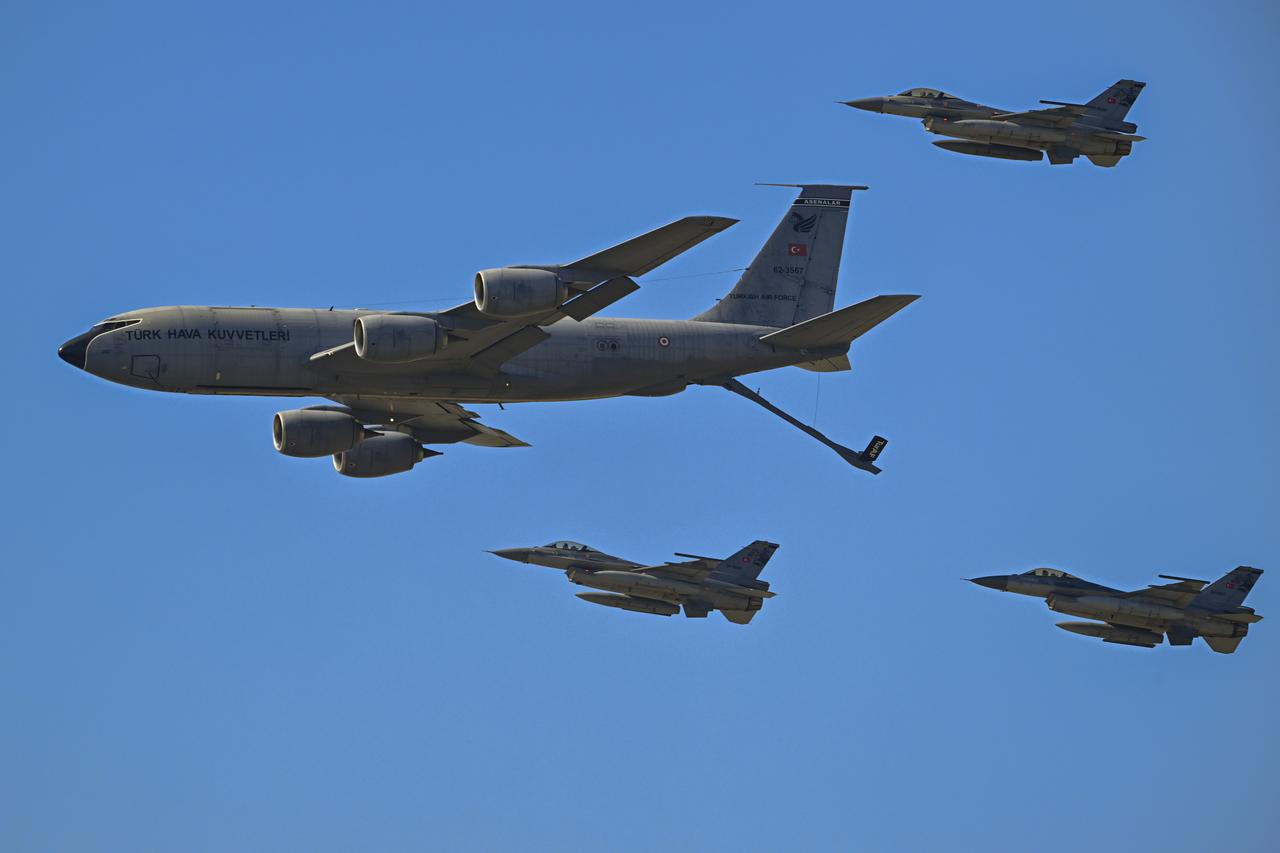
The Turkish Air Force (TuAF) is reportedly evaluating Boeing's KC-46A Pegasus and Airbus A330 MRTT as potential replacements for its aging KC-135R Stratotanker fleet, with negotiations ongoing with both manufacturers, according to Turkish defense officials speaking to Breaking Defense.
"The choice to buy the new tanker (is between) MRTT and KC-46," a Turkish official with knowledge of the matter told Breaking Defense, adding that negotiations are ongoing with both sides, though specific numbers and timelines remain undisclosed.
Defense publication Janes' correspondent Gareth Jennings also recently reported that Türkiye is deciding between the two platforms, with Jennings noting "advantages to both," citing that the KC-46A has "similar USAF maintenance ethos that TuAF knows," while the A330 MRTT offers "more for aeromed etc."
Türkiye's seven KC-135R Stratotankers, stationed at Incirlik Air Base in Adana under the 101st Air Refueling Squadron, are showing signs of metal fatigue with maintenance costs steadily increasing.
The youngest aircraft in the fleet is 58 years old, having originally been delivered to the U.S. Air Force between 1959-1963.
The aircraft were retired from U.S. service in 1993, stored at the 309th Aerospace Maintenance and Regeneration Group, then modernized and delivered to the Turkish Air Force between December 1997 and July 1998. They were later upgraded with Global Air Traffic Management systems in the early 2010s.
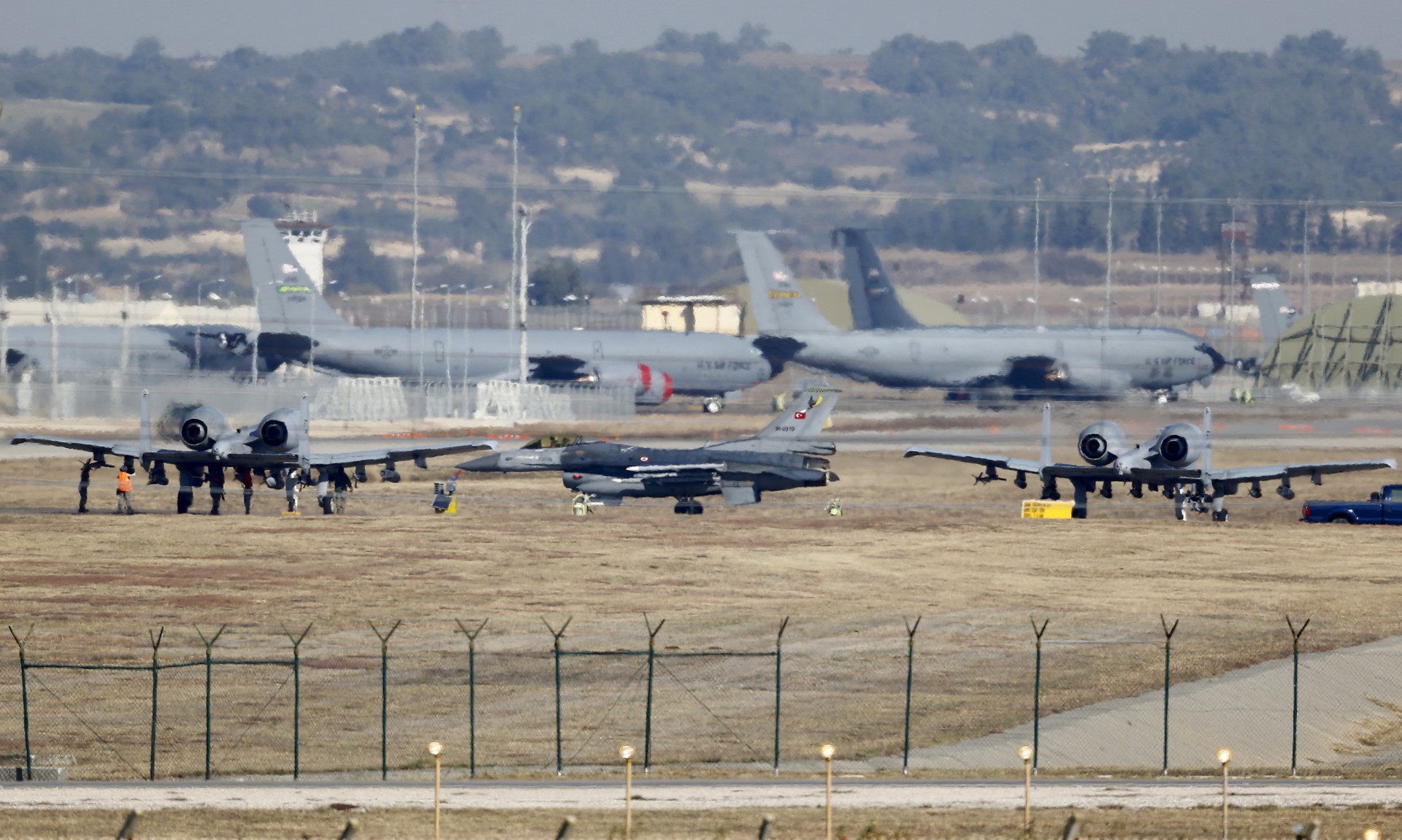
Boeing KC-46A Pegasus
The KC-46A program has faced technical difficulties and production delays. Initial deliveries began in January 2019, but were suspended in late February due to cracking issues in the outboard fixed trailing-edge support structure.
The U.S. Air Force recently resumed deliveries after identifying and addressing the root cause of aileron hinge cracks found on 21 of 89 aircraft. Additionally, fixes for the aircraft's Remote Vision System have been delayed until 2027.
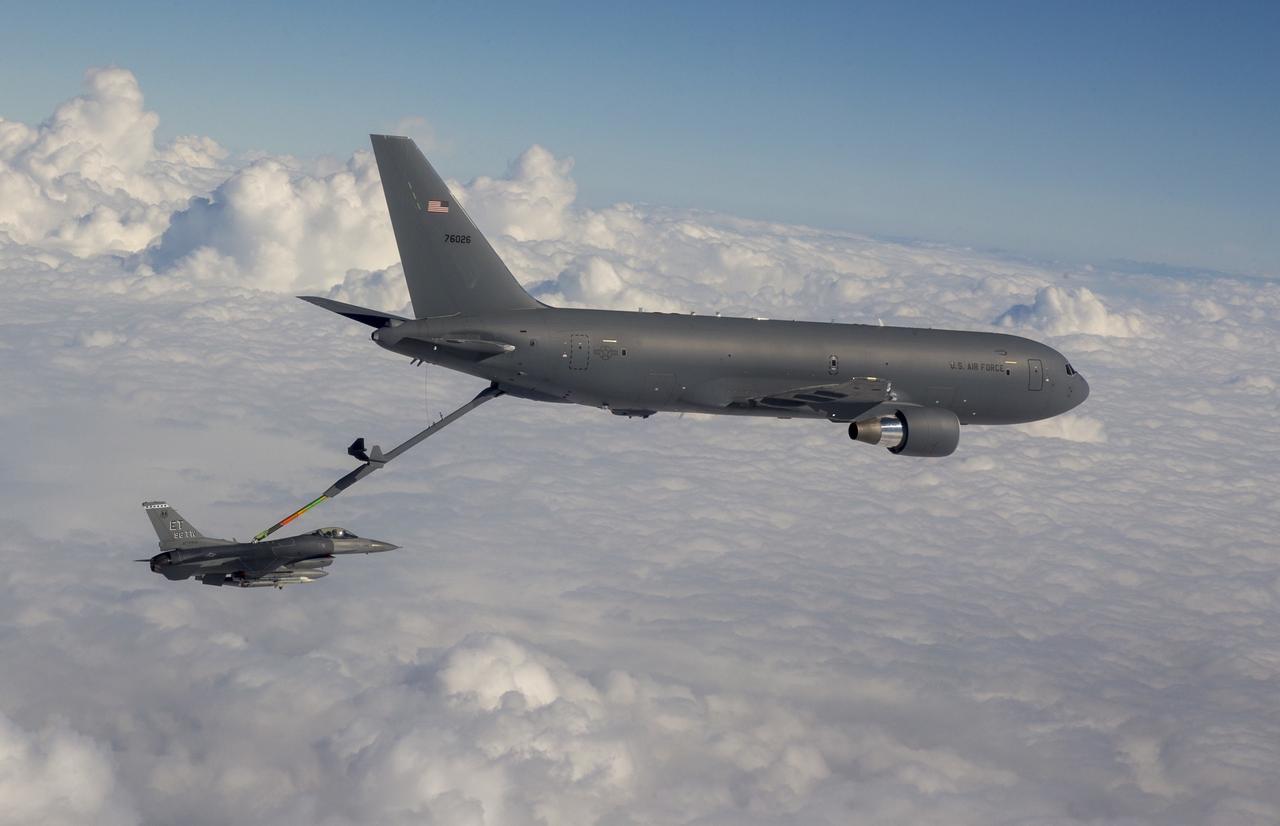
Airbus A330 MRTT
The A330 MRTT has gained significant international acceptance, chosen by 15 nations including Australia, Canada, France, NATO's Multinational MRTT Fleet, South Korea, Singapore, Saudi Arabia, Spain, UAE, and the UK. As of June 2021, 61 A330 MRTT aircraft had been ordered, with 47 delivered, accumulating over 250,000 flight hours.
The aircraft's multi-role capability allows it to perform three different missions without reconfiguration: air-to-air refueling, passenger/VIP transport, and aeromedical evacuation.
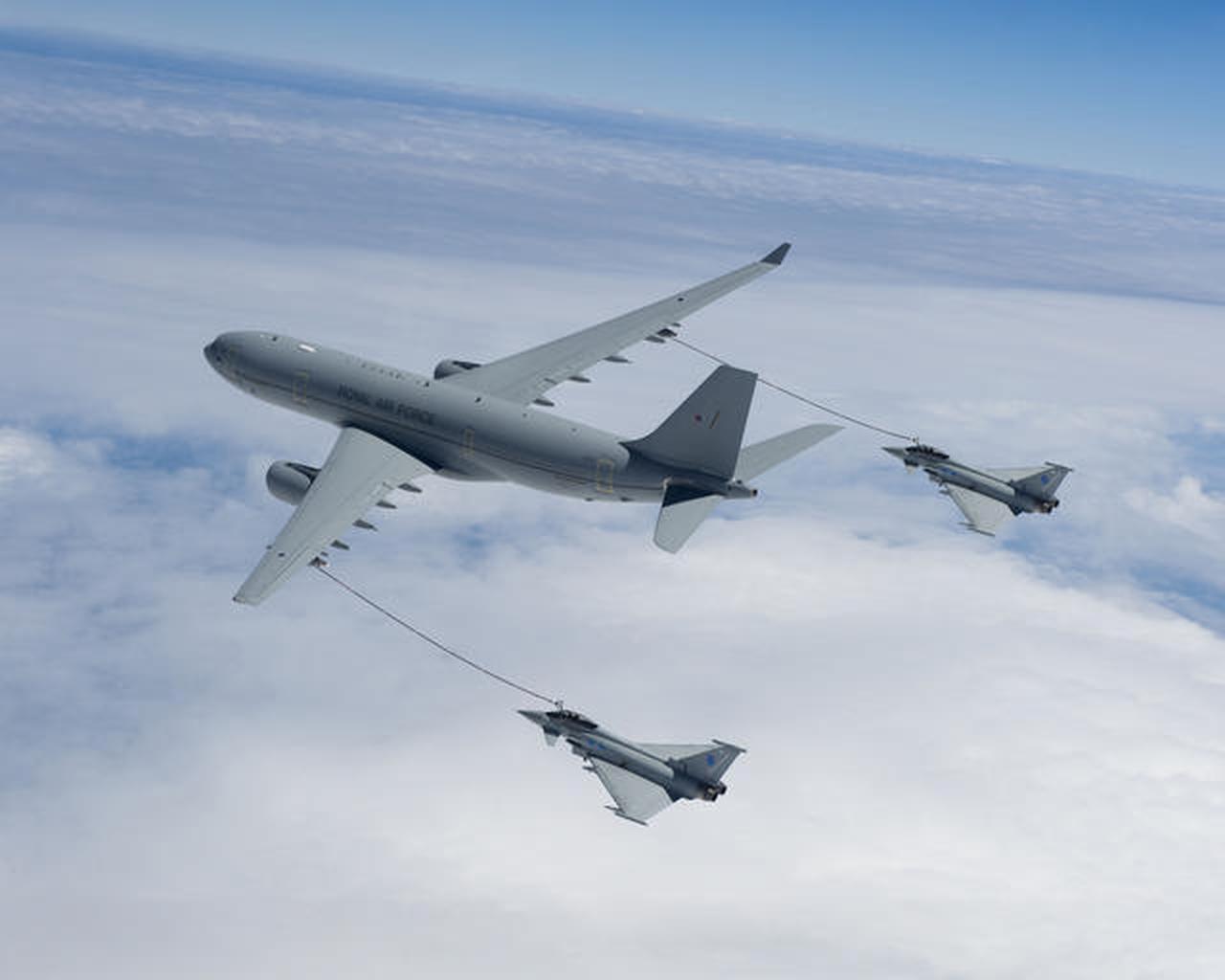
Turkish defense expert Barin Kayaoglu, who spoke to Breaking Defense, described the Turkish Air Force's tanker replacement as "a big need and timely," noting geopolitical implications of the choice.
"Buying American (Boeing's KC-46) helps Ankara-Washington / Erdogan-Trump ties. (While) buying European (Airbus A330 MRTT) keeps Türkiye in Europe's good graces," Kayaoglu told.
ASFAT officials noted that "both systems have advantages within themselves. The Turkish Air Force is quite familiar with the US Air Force's maintenance and operation concept through KC-46A; on the other hand, A330 MRTT offers more flexible solutions in multi-role missions, especially aeromedical evacuation."
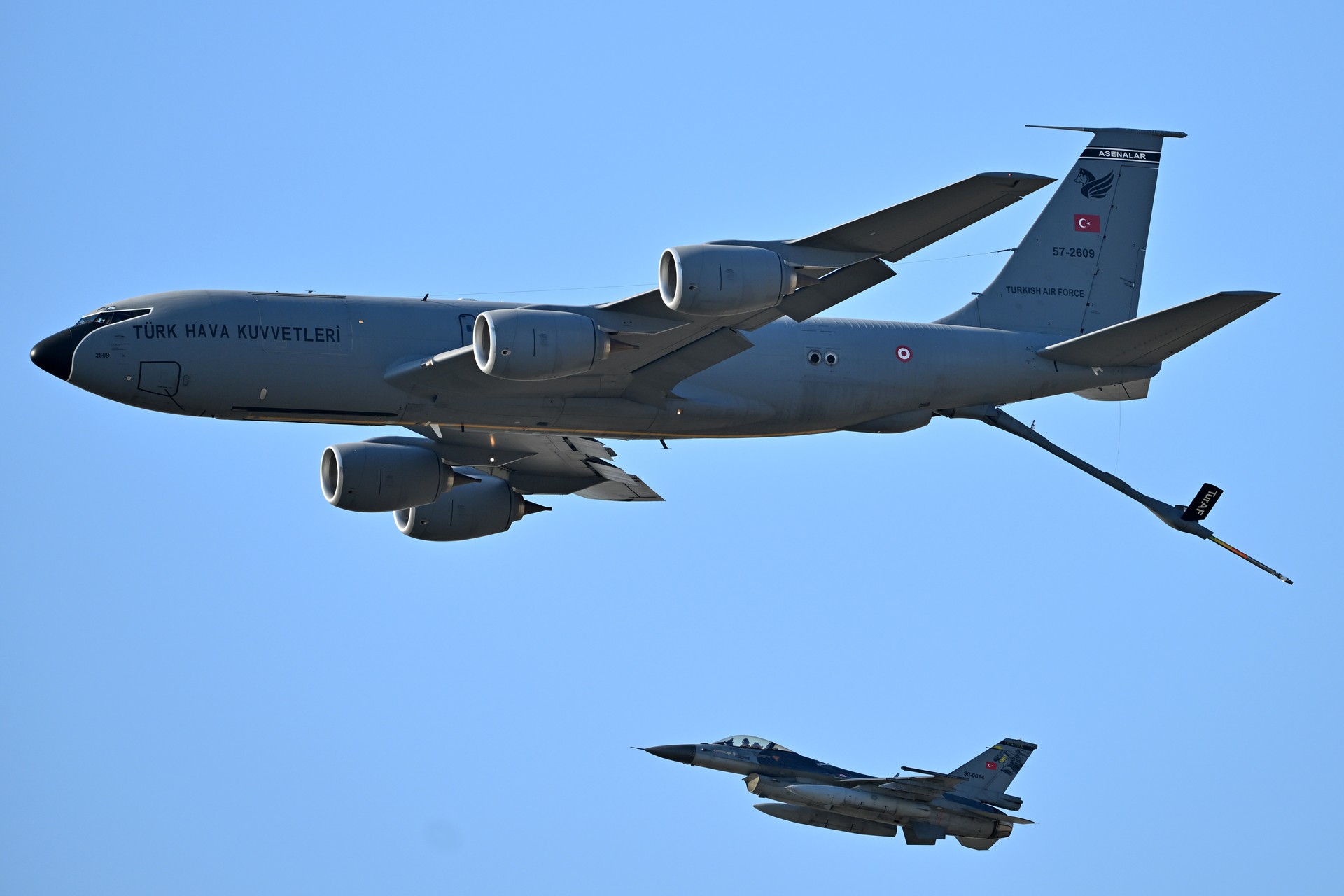
The KC-135R fleet has a fuel capacity of 92 tons, with 52 tons transferable during air-to-air refueling missions. The aircraft can remain airborne for 8 hours during refueling operations with a mission range of 2,419 kilometers.
These aircraft feature a tail-mounted refueling boom for aircraft with receptacle-type fuel systems, and can be equipped with boom-drogue adapters for probe-equipped aircraft, though the Turkish fleet has limited numbers of these adapters.
The tanker replacement plan represents part of a broader Turkish Air Force modernization effort. Türkiye also reportedly needs "bigger and longer-haul cargo planes" to supplement its A400M fleet and has requested to procure 12 C-130J aircraft retired from the U.K. Royal Air Force (RAF) service.
Türkiye is preparing to receive Lockheed Martin C-130J/C-130J-30 Hercules airlifters into military service, with sources confirming that the aircraft will arrive in early 2026, according to defense publication Janes' report by Gareth Jennings.
The KC-46A offers NATO standardization benefits and compatibility with existing U.S. Air Force procedures, while the A330 MRTT will provide greater mission flexibility and interoperability with European partners at a time when Ankara is seeking to play a greater role in European security architecture.
While negotiations continue with both manufacturers, Turkish officials have not specified the timeline for a final decision or the number of aircraft required. The choice will significantly impact Türkiye's aerial refueling capabilities and strategic partnerships for decades to come, as modern tanker aircraft typically serve 30-40 years in operational service.